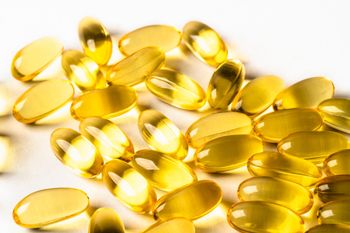
Higher Protein Consumption Linked to Feelings of Fullness, Meta-Analysis Finds
The new meta-analysis included five studies, in addition to a directional analysis comprised of 28 studies.
While researchers and protein firms have long suggested consuming protein may increase satiety, the concept has not yet been studied on a large scale, according to researchers writing in Journal of the Academy of Nutrition and Dietetics. A new meta-analysis, however, suggests a higher protein intake does indeed increase fullness ratings more than a lower protein intake.
“A good deal of evidence suggests that protein activates satiety hormone release and so should be most strongly tied with fullness ratings, but individual studies are often conducted in small populations or with different approaches that can make interpretation of results challenging,” says Richard D. Mattes, PhD, lead investigator of the study. “Our study combined multiple experiments to confirm the presence of an effect.”
The study involved a quantitative meta-analysis of five studies and a secondary directional analysis using a vote counting procedure, which included 28 studies. Inclusion criteria for the two analyses were healthy human participants, delivery of protein load orally, preload studies utilizing intact dietary protein, and studies reporting fullness as an outcome. The meta-analysis also included the additional criterion that studies report 2- to 4-hour area under the curve value for fullness.
Both the meta-analysis and the directional analysis indicated “higher protein preloads increase fullness rating more than lower protein preloads under tightly defined conditions,” concluded researchers.
One area that remains to be studied further is the best time of days to consume protein to prolong fullness, as well as the amount of protein needed, noted Heather Leidy, PhD, an author of the study. Additionally, researchers are looking toward the long-term effects of protein consumption on satiety as a potential area for future research.
“Though this study did not specifically evaluate dieters, feeling fuller could help to reduce food intake, an important factor when dieting,” says Mattews. “If these effects are sustained over the long-term-and our study only looked at short-term effects-increased protein intake may aid in the loss or maintenance of body weight.”
Read more:
Michael Crane
Associate Editor
Nutritional Outlook Magazine
References:
Dhillon J et al.,” The effects of increased protein intake on fullness: a meta-analysis and its limitations,” Journal of the Academy of Nutrition and Dietetics. Published online March 3, 2016.
Newsletter
From ingredient science to consumer trends, get the intel you need to stay competitive in the nutrition space—subscribe now to Nutritional Outlook.





